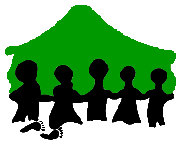Family: Maria Imaculada Martinz (mother); Filamena dos Santos (sister)
Place of origin: Ponilala, Ermera
Filamena dos Santos (older sister):
‘There are six children in our family and I am the second eldest. I was 15 years old when Indonesian soldiers from Battalion 315 took my younger sisters, Agusta (8) and Madelina (7). Our father was killed by the pro-independence party Fretilin just before the invasion. He was a member of the UDT. [1] Our mother, Maria Imaculada Martinz, died in 1979.
At that time we were living in the Aifu camp. Many people were forced to live crowded together in the coffee store sheds located there. The soldiers who took my sisters often came to visit them, bringing sweets and biscuits, clothes and shoes.
Coercion…Permission
One day the soldiers visited my mother to discuss taking the children back to Indonesia. They were in uniform with weapons. They forced her indirectly to give my sisters to them. Their guns and also what they said frightened my mother. The soldiers told her that she knew what would happen if she didn’t hand them over. She just told me this, but never talked about it. Maybe she gave them the children because the soldiers would kill her, or maybe she had to do this in order to protect her older daughters from the soldiers. I’m not sure, but after that she was always sad.
The soldiers had a letter of surrender which they asked my mother to sign. By signing it my mother gave the soldiers permission to take my sisters to Indonesia, to adopt and educate them. The soldiers promised her that they would return the children when their education was complete. The local military commander and the civilian leaders (sub-district and village heads) signed the letter, as well as witnesses. The letters were all lost in 1999 when our house was destroyed by militia.
You have to understand that it was war at that time. The soldiers were like gods. If they asked for a child, you had no choice other than to hand the child and sign the letters they presented. Otherwise they threatened you. But it was also very difficult for our mother to provide for all her children. Her husband was dead. Many people were dying because of hunger, including many children. So maybe our mother also saw it as a way to ensure Agusta and Madeline survived.
But I don’t know why the soldiers wanted to take them. Maybe the reason was that our father had been killed by the Fretilin. There were also other children who were taken away from the Aifu by soldiers. The soldiers put them in a truck. Agusta and Madeline were sitting in the front. We were all crying.
See also Luis Manuel Maya and Agusta Fatima Babo and Cristovão
Visit to Dili
My mother and I got permission from the district military command, Kodim, to travel to Dili to visit the girls in the Taibesi military base. We had a travel letter, surat jalan, for four days. We travelled on the back of a military truck taking coffee from Ermera to Dili. In Dili we stayed with relatives. When we arrived at the military base we were not allowed to go in and see the girls. An East Timorese who was working for the soldiers told us that they were there. We came back to try again the next day, but we were told that the battalion had already left, taking Agusta and Madelina with them.
Contact
So we didn’t see them leave. The soldiers promised they would write to us, but they never did. We never had any further news from the girls for 25 years, until the time of the referendum.
At that time Madelina came to West Timor with Hermansia, her husband who is a soldier from Sumatra. Many people from Ermera had fled to West Timor after the vote. Hermansia and Madelina asked among the Ermera people if anyone knew our family from Ponilala. Through them Madelina sent a letter and photos, one taken with her sister and another of the two of them with their husbands.
We heard that in 1977 the soldiers who took them gave them into the care of other military families, but they still remained in contact with each other. Both were married and had children. When we contacted them on the phone number Madeline gave us, she asked about our mother, but we didn’t have the heart to tell her that she had died many years ago. Twice we had contact with Madelina, but then the number in Kupang did not work for her anymore. We heard that Hermansia had been posted to Medan in Sumatra. We have had no contact with Agusta.
Our family still hopes one day that they will contact us again.’
[1]The UDT initially supported continued association with Portugal, then later integration with Indonesia. See the CAVR report for a history of the political parties and the party conflict.

